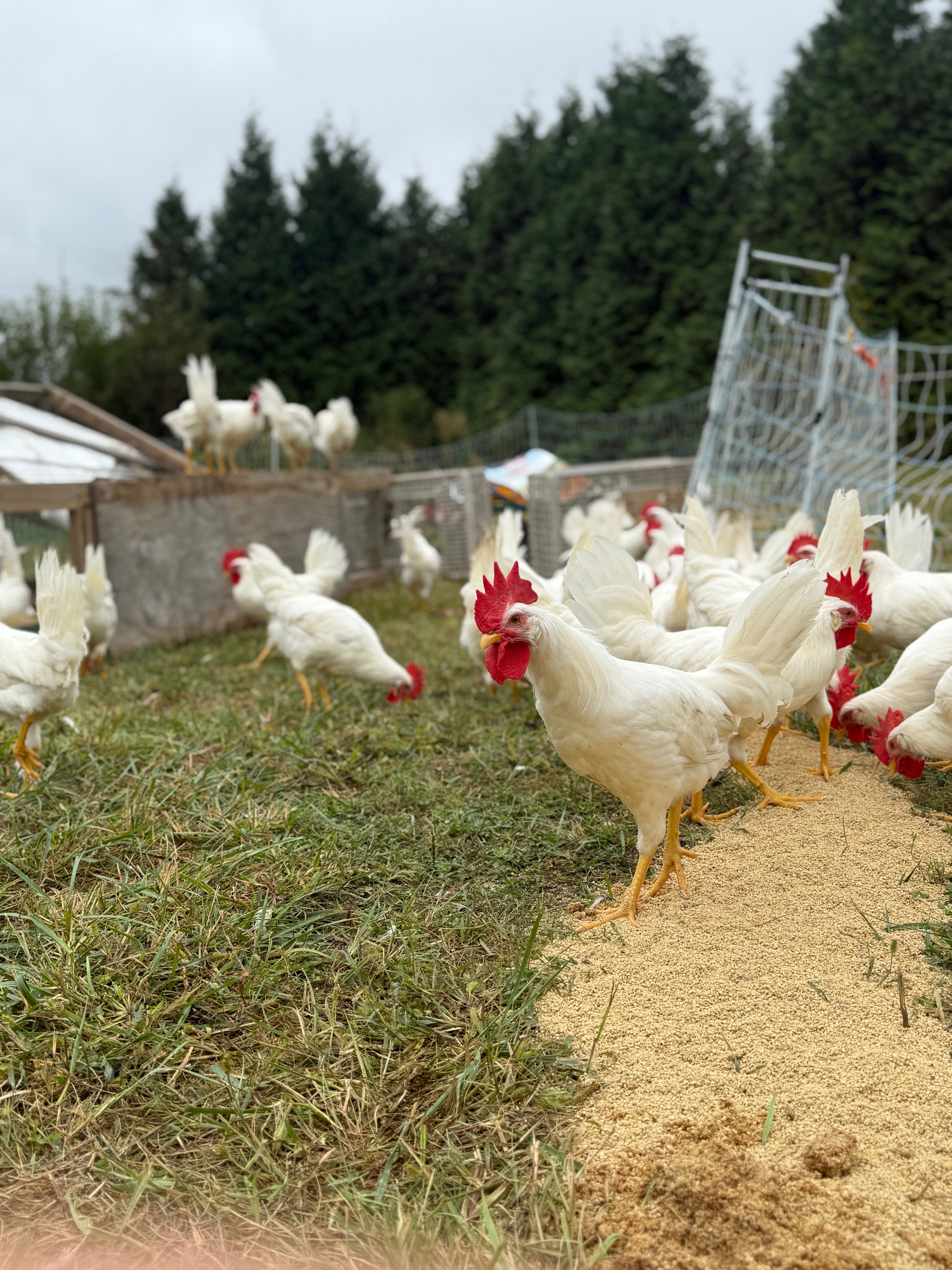Discover how Farmer Brad in Indiana teamed up with Kipster to pioneer sustainable poultry farming by raising roosters that would normally be discarded.
About the Farmer Brad × Kipster Partnership
In the egg industry, billions of male chicks are traditionally culled because they don’t lay eggs and grow inefficiently for meat. Kipster, a global leader in animal welfare and sustainable farming, is changing that. Through a collaboration with Farmer Brad LLC, male chicks are raised on pasture in Indiana to produce high-quality, sustainable meat instead of going to waste.
Kipster is recognized for radical transparency (including 24/7 barn livestreams) and their adoption of groundbreaking in-ovo sexing technology.
Timeline: First U.S. In-Ovo Hatch in June 2025
A historic milestone took place when Kipster’s first U.S. in-ovo hatch started in June 2025 at a Hendrix ISA hatchery using Respeggt technology. This system can identify the sex of embryos before hatching, reducing the need for male chick culling.
Learn more in Kipster’s official article: Egg Producer Kipster Uses In-Ovo Sexing Technology at Hendrix ISA. Additional coverage: Innovate Animal Ag’s report and their Q2 2025 in-ovo roundup.
- In-ovo technology first: Since June 2025, Kipster uses Respeggt’s DNA-based in-ovo sexing system to detect male embryos before hatch.
- Farmer Brad received 104 roosters that still hatched after the in-ovo technology was used.
- Once raised and processed the rooster meat was distributed to various chefs in the Indianapolis and surround areas.
- Once chef demand is secured, then more roosters will be raised and the cycle of sustainbility continues.
Videos of the Farmer Brad × Kipster Journey
Chicks Arrive at the Farm
Updates from Brooder to Pasture
Why We’re Doing This
Indiana Grown: Kipster Farm Feature
A Chat with Farmer Brad
Why This Matters for Sustainable Poultry Farming
- Reduces waste: Roosters are raised for meat instead of being culled.
- Improves animal welfare: In-ovo sexing significantly decreases unnecessary hatching of male chicks.
- Transparency and education: Livestream barns and local farm updates create consumer trust.
For more background, see the ASPCA’s explanation of male chick culling in the egg industry.
What’s Next for Farmer Brad × Kipster
Local Indiana chefs are already experimenting with creative ways to prepare Kipster rooster meat—from slow-roasted dishes to inventive farm-to-table entrées.
Looking ahead, Farmer Brad plans to raise more Kipster roosters in the spring and scale up once demand is established. Instead of moving just 100 birds at a time, the vision is to handle flocks of up to 1,000 roosters at once. Achieving that scale requires new infrastructure—especially a large mobile chicken tractor designed to house 1,000 birds on pasture.
This is where you can help. Your support will directly fund the purchase of this large-scale chicken tractor, enabling us to grow sustainably and expand access to ethically raised rooster meat. Every donation counts.
Follow and Support Farmer Brad × Kipster
Stay updated by following @farmerbradllc on Instagram and exploring Kipster’s press center.




0 comments